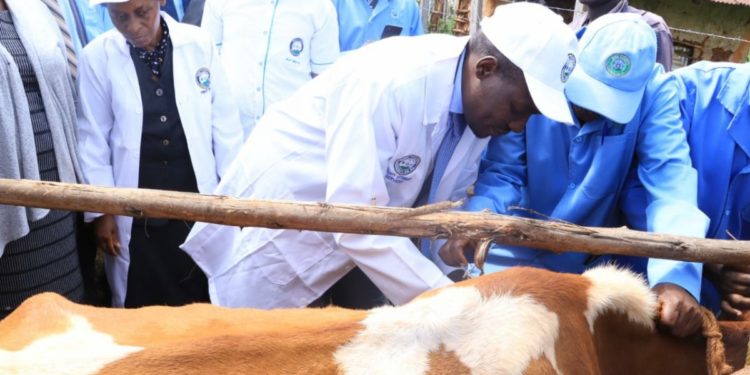The Kenya Veterinary Association (KVA) has urged President William Ruto’s administration to pause the national livestock vaccination campaign, warning that the initiative risks failure due to poor planning, politicization, and a lack of public trust. The program, which targets major livestock diseases like Foot-and-Mouth Disease (FMD) and Peste des Petits Ruminants (PPR), has sparked controversy, with the KVA insisting that more time is needed for public sensitization and stakeholder engagement.
In a statement released yesterday, the association acknowledged the importance of nationwide immunization but criticized the government’s “hasty and ill-prepared” rollout. “We strongly condemn attempts by some politicians to politicize the vaccination campaign,” the KVA said. “Such actions distract from the critical goal of controlling diseases and risk alienating livestock keepers.”
The statement reflects growing frustration within the veterinary community and among farmers, fueled by mistrust stemming from past government missteps. The association highlighted scandals such as the distribution of fake fertilizer as examples of why skepticism has taken root. “It’s hard to blame Kenyans when they see conspiracies in such programs,” the KVA noted.
To ensure success, the KVA recommends postponing the vaccination drive until comprehensive public education is conducted. According to the association, pushing ahead without addressing these gaps risks undermining the program and further eroding public confidence.
The KVA also called for a targeted approach, suggesting that resources be directed toward regions most affected by livestock diseases. “A blanket vaccination drive wastes resources. Instead, we should focus on areas where livestock owners face the greatest risks,” the statement explained.
Additionally, the vets urged the government to depoliticize the campaign, stressing that it must focus purely on animal health. They called for improved collaboration with veterinarians, local leaders, and farmers, noting that Kenya’s limited veterinary workforce—just 2,800 registered professionals—cannot meet the current demand without additional support.
The statement concluded with a plea for partnership: “By acting decisively and collaboratively, we can control FMD and PPR, enhance livestock productivity, secure livelihoods, and restore Kenya’s global agricultural reputation.”
















